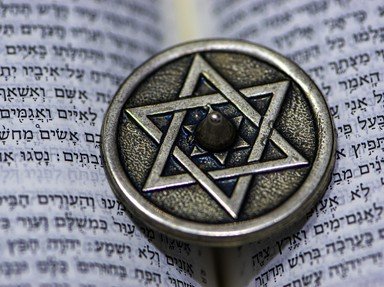Quiz Answer Key and Fun Facts
1. In my introduction, I stated that there is a connection between the number thirty-six and Jewish customs and superstitions. What is the connection?
2. Many Jewish superstitions revolve around the "evil eye". Which of the following is NOT true regarding the "evil eye"?
3. Which of the following would a Jew who was fearful of inviting the "evil eye" NEVER do?
4. You are a superstitious Jewish teacher. Which of the following instructions to your class would require you to make an appropriate statement in order to ward off the "evil eye"?
5. The Afghani and Persian Jewish communities created a unique method to keep children's attention during the long Passover seder meal. What is it?
6. Kabala enthusiasts like Madonna have recently made the red string, worn on the left wrist, popular. Traditionally, what is done with the red string BEFORE it is worn?
7. Which of the following can bring bad luck, according to Jewish superstition?
8. There is a Jewish tradition called "shaliach mitzva", which involves giving money to a person about to begin a journey. What is the money intended for?
9. In Sephardic synagogues, what is thrown at bar mitzva boys when they are called to the Torah?
10. What do Jews do if they accidentally drop a PRINTED holy book?
Source: Author
janetgool
This quiz was reviewed by FunTrivia editor
LeoDaVinci before going online.
Any errors found in FunTrivia content are routinely corrected through our feedback system.

